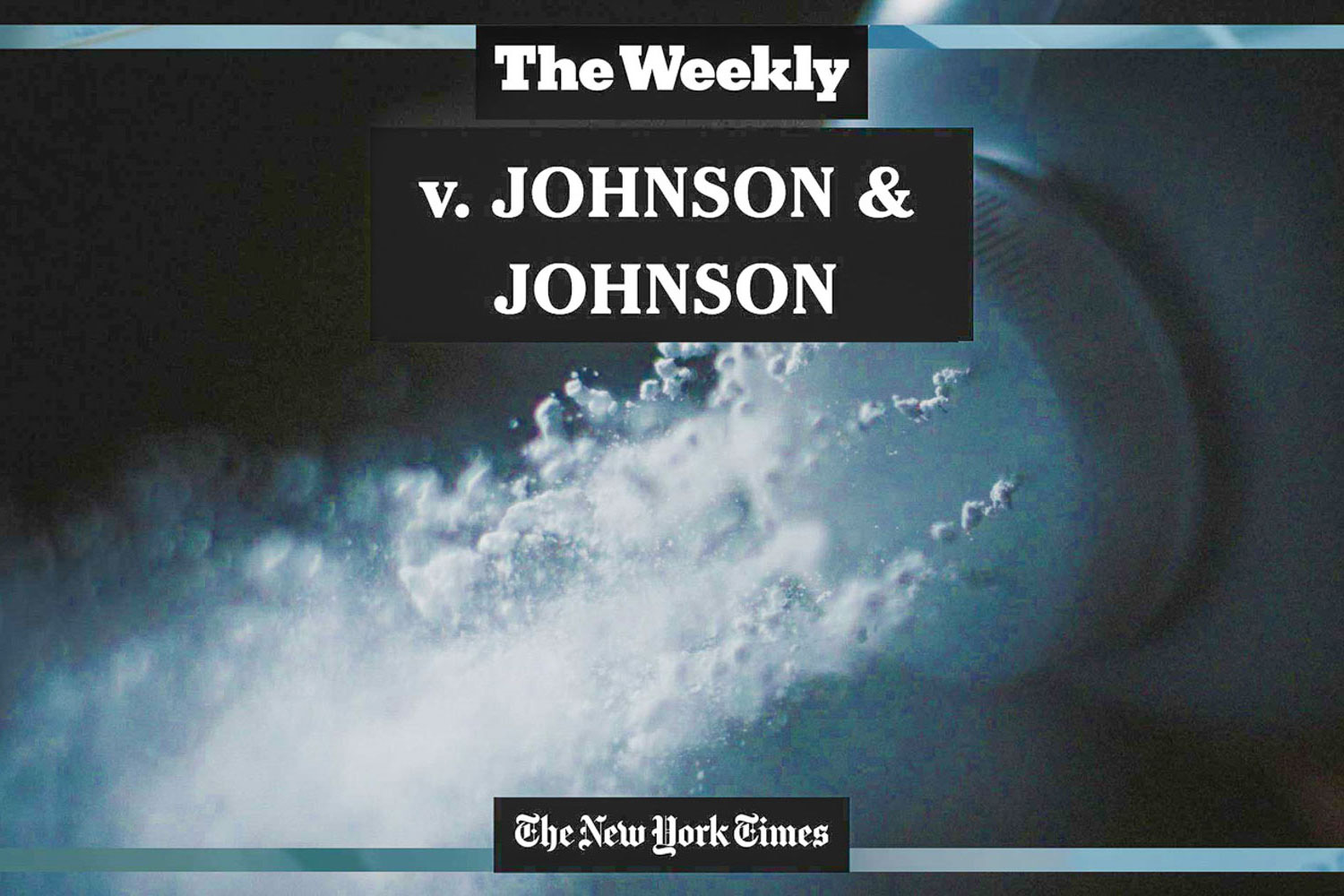Keywords: The Weekly, v. Johnson & Johnson, documentary, Alyse Shorland, investigative journalism, healthcare industry, talcum powder, asbestos, legal battle, cancer allegations, court trial, corporate responsibility, public health, ethical business practices. Three words: 'Investigative', 'Controversial', 'Revealing.'
"The Weekly: v. Johnson & Johnson" is an insightful documentary directed by Alyse Shorland and released in 2019. It delves into the controversial legal battle between Johnson & Johnson and plaintiffs who claim that the company's talcum powder products contained asbestos and led to their cancer diagnoses.
Synopsis
This episode of "The Weekly" documents the investigative report into claims that Johnson & Johnson's popular talcum powder products contain asbestos, a known carcinogen. The documentary presents a comprehensive view of the legal battles faced by the healthcare giant, as well as the personal stories of those who believe they were harmed by the products.
More Film Analysis
Analysis
The documentary's approach is investigative and critical, shedding light on the alleged corporate negligence and the potential health risks associated with a commonly used household product. It dives deep into the legal proceedings, medical research, and personal testimonies, offering a multi-faceted perspective on the issue.
Historical and Factual Context
Johnson & Johnson, a renowned healthcare company, has been a trusted brand for decades. The allegations raised in this documentary question the company's transparency and responsibility towards public health.
Key themes in the film
- Corporate responsibility and transparency
- Public health and safety
- Legal battles and justice
- Impact of media and investigative journalism
Film Comparisons
The investigative style of "The Weekly: v. Johnson & Johnson" can be compared to other hard-hitting documentaries like "Dirty Money" and "The Bleeding Edge", which also delve into corporate misconduct and its impact on public health.
Noteworthy Moments
One of the most significant moments in the documentary is the revelation of internal Johnson & Johnson documents that allegedly indicate the company's knowledge of asbestos in their talcum products. The personal stories of those affected also add an emotional depth to the factual narrative.
Reviews
The documentary has garnered positive responses for its thorough investigation and its balanced portrayal of both sides of the legal battle. Critics praised its deep dive into the complex issue, calling it "a powerful exploration of corporate responsibility and public health."
Conclusion
"The Weekly: v. Johnson & Johnson" is an important watch for anyone interested in public health, corporate transparency, and the power of investigative journalism. It presents a cautionary tale about the potential risks hidden within everyday products.
More film information:
FILM SUMMARY
- IMDB score: 7.2/10
- Rotten Tomatoes score: 89%
- Metacritic score: Not available
- Film festival awards: Not available
PERSONALITIES
- Alyse Shorland: Director
- Johnson & Johnson: Healthcare company involved in the legal battle
- Plaintiffs: Individuals alleging harm from Johnson & Johnson's products
LOCATIONS
- Courtrooms across the United States
- Johnson & Johnson corporate headquarters
Key Questions Raised by the Film:
- What is the responsibility of corporations towards public health?
- How can consumers protect themselves from potential health risks?
- What is the role of investigative journalism in uncovering corporate misconduct?
Links for Further Exploration:
I wonder what the film would be in another art form



- If this film was a famous book, it would be "The Insider" due to its focus on corporate malpractice.
- If this film was a famous song, it would be "Bad Medicine" by Bon Jovi, reflecting the harmful effects of a trusted product.
- If this film was a famous piece of art, it would be Picasso's "Guernica," which depicts the horrors of negligence and destruction.
- If this film was a famous celebrity, it would be Erin Brockovich, known for her fight against corporate negligence.
- If this film was a color, it would be grey, symbolizing the murky area between corporate profits and public health.
- If this film was a music style, it would be investigative journalism, representing its essence of uncovering hidden truths.








